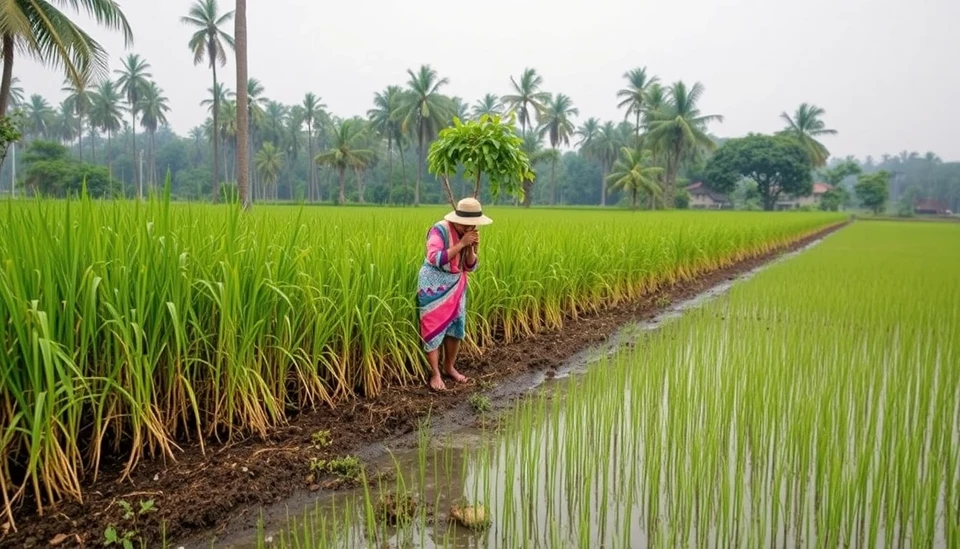
In a groundbreaking move aimed at addressing the disruptions caused by climate change, India's foremost stock exchange is set to introduce its very first rain derivatives. This innovative financial instrument is designed to provide farmers and other stakeholders with a safety net against the erratic weather patterns that have emerged due to global warming. The initiative is not just a financial product, but also a critical tool intended to bolster resilience within the agricultural sector.
The Bombay Stock Exchange (BSE) is spearheading this initiative, which will allow participants to hedge against rainfall variability. As India's agriculture largely depends on monsoon rains, the unpredictability of these weather patterns has placed immense strain on farmers. The forecast for the upcoming monsoon season, which has historically dictated the planting and harvesting cycle, is becoming less reliable, leading to financial instability in rural areas.
To elaborate, the rain derivatives market is anticipated to offer contracts based on rainfall indices. These indices will be meticulously calculated and released, serving as a benchmark for traders to buy or sell contracts depending on their expectations of rainfall. The derivatives aim to equip farmers with the capability to mitigate their risks linked to poor rainfall, which can lead to diminished crop yields and subsequent financial losses.
Market analysts suggest that these derivatives may prove to be a game changer for Indian farmers, many of whom operate on thin margins and are vulnerable to the vagaries of nature. This move is also expected to ignite a wave of similar initiatives across various climate-affected sectors, fostering a broader adoption of risk management tools in India’s economy.
Furthermore, the implementation of these derivatives aligns with Agriculture Minister Narendra Singh Tomar’s vision of enhancing farmer income through innovative financial solutions. The government has indicated its support for such initiatives, highlighting the necessity to integrate modern financial instruments within traditional farming practices to deliver more substantial results.
Critically, the introduction of rain derivatives will offer stakeholders in agribusiness, insurance, and investment sectors an entirely new avenue for growth and stability. This is particularly vital in regions of India that experience acute water scarcity, where farmers often face the brunt of failed crops due to lack of rain. Thus, the derivative market not only stands to benefit individual farmers but could also stabilize local economies reliant on agriculture.
As preparations for the rollout of these contracts are underway, the BSE is actively engaging with various stakeholders to ensure that the structure of these instruments aligns with the needs of the farmers. Educational campaigns may also be in the offing to help farmers understand how to leverage these new financial products for maximum benefit.
In conclusion, the introduction of rain derivatives by the BSE is expected to revolutionize agriculture in India, offering a much-needed lifeline to farmers struggling to cope with the adverse effects of climate change. This initiative not only aims to pave the way for a more resilient farming community but also contributes to the broader goal of sustainable practices in finance and agriculture.
As India embarks on this transformative journey, all eyes will be on the BSE as it sets the stage for a new era of financial instruments tailored to combat the challenges posed by climate unpredictability.
#India #RainDerivatives #ClimateChange #Finance #Agriculture #BSE #SustainableFarming #FarmInsurance #FinancialInnovation #AgriculturalResilience
Author: Peter Collins




